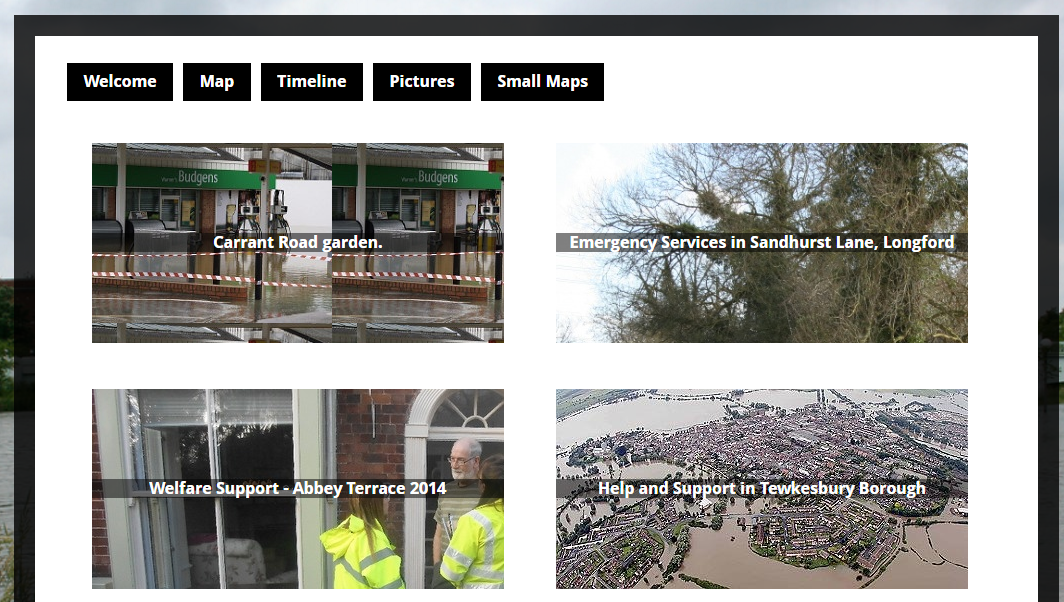Sustainable Flood Memory

Sustainable Flood Memory
Using media, archives and memory to manage flooding
Professor Joanne Garde-Hansen and her team have developed and shared archives of digital stories based on flood experiences with flood-risk communities in the UK and Brazil to help at risk communities prepare for future flooding. The ESRC-funded projects combine community-led storytelling and resilience training with digital tools, aiming to preserve and develop knowledge of flooding.
The challenge
In the UK, 1.8 million people live with an annual risk of flooding greater than 1 in 75. This figure is expected to rise due to climate change and the pressures of development. The number of homes affected by three consecutive storms in January 2016 topped 16,000, leading to significant financial and emotional suffering and damage of £1.3bn.
The impact of flooding on people’s mental health is also significant. Studies have found that 36.2 % of flood victims had probable post-traumatic stress disorder, 20.1% depression and 28.3% anxiety. Professor Garde-Hansen and the team have found new, creative ways to help communities build resilience, prepare for future floods, and mitigate the practical and mental effects of flooding.
Our approach
British stakeholders included the Environment Agency, flood risk groups, National Flood Forum and local archives. The project linked Brazil’s Sabesp, Museu da Pessoa and CEMADEN with academics from the UK. These included UWE’s Centre for Water, Communities and Resilience as well as Warwick’s Department of Computer Science, Warwick Institute for the Science of Cities and the Institute for Global Sustainable Development. Professor Garde-Hansen examined:
-
Archive data
-
Community memory and storytelling
-
Social media networks
-
Photographs and video
-
Newspaper reports
The researchers then brought this data together to create digital toolkits, curated exhibitions, and story data for the development of two flood memory apps (in the UK and Brazil). Bringing together digital stories and flood memories from communities affected by flooding, these resources allow other communities and key stakeholders to learn from people’s experiences. By mapping generations of memory onto at-risk areas, the information could improve preparations for flooding in future.

Our impact
The Sustainable Flood Memory project has made a significant contribution to how the Environment Agency communicates flood risk. Professor Garde-Hansen’s findings have been used to create new ways of informing communities in Gloucestershire and beyond, helping build resilience amongst those most under threat. By combining memories of the kindness of neighbours, the records of journalists and the efforts of the emergency services, future generations can learn the lessons of the past to help prepare for the future. Community flood groups, archive and heritage organisations, rural community councils and the Canals and Rivers Trust have all benefited from the project’s research, all of which are stored permanently at the Gloucestershire Heritage Hub.
Discover more of Professor Garde-Hansen's research


What is research impact?
Discover why it matters

More impact stories
Explore other work from the School of Creative Arts, Performance and Visual Cultures at Warwick
